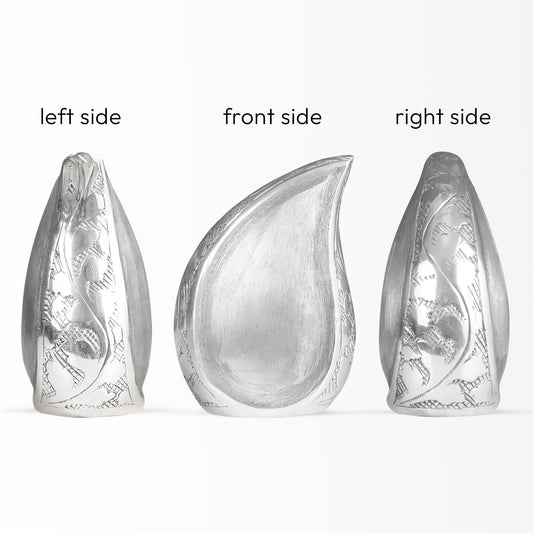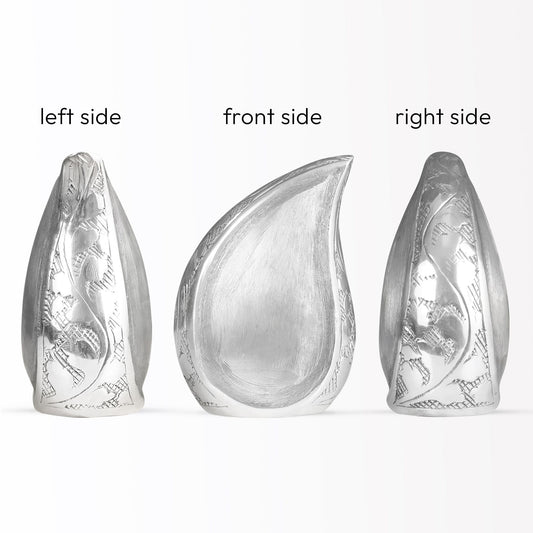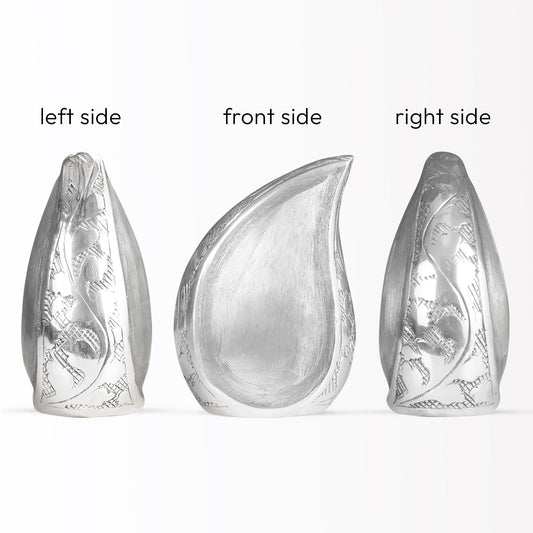Popular Urns
Texas State Cremation Laws and Its Overview

Cremation is increasingly becoming the order of choice for last rite ceremonies in Texas, fitting the national trend in the United States. In Texas, law plays a huge role in cremation, ensuring the manner in which it is done is safe and dignified. But again, as is the case with other laws, Texas has its pros and cons and also loopholes in the prevailing laws.
Overview of the Laws of Cremation in Texas
In Texas, cremation is a controlled process under the Health and Safety Code. Various procedures are outlined in the legislation. It stipulates that an authorization form be signed by the legal next of kin or an authorized representative of the deceased before cremation.
It contains consent for the cremation and other details about the deceased.
Texas law also states that all cremations must be carried out at licensed crematories. On the other hand, the legislature has said that the remains must be handled with adequate care, and records with such a document including identification of the deceased and chain of custody shall be maintained by the crematory.

Benefits from Texas Cremation
1. Cost and Value: Cremation can be much cheaper than traditional burial because it saves costs on caskets, burial plots, and headstones. Therefore, it is a cost-effective option for budget-conscious families.2. Flexibility: Cremation permits all kinds of memorialization. Families can conduct memorial services at different locations or keep the ashes in personal spaces.
3. Environmental Factors: For people who want to help save land and the environment, cremation is more friendly because it does not use land nor consume much resources for a casket.
4. Ease of Process: The process of cremation might be relatively simpler than planning a traditional funeral which usually requires very elaborate services and legal processes.
Cremation Disadvantages

1. Emotional Factors: Cremation does not provide that closure that traditional burial seems to offer for some people and households. There is no resting place with a grave under which they can pay their respects and remember their loved ones.
2. Legal Issues: Conflicts may rise on which individual is given the right to give an instruction to cremate the remains. Even if some family members are opposed to it, it brings along legal issues; hence the person will undergo further frustration from what the individual in their lifetime would not want to be faced with.
3. Misconception about the Procedure: There are misconceptions on what cremation is. Therefore, unrealistic expectations or even feelings of guilt arise within the family.
Although the purpose of Texas cremation laws is to provide protection both to the deceased and the next of kin, there are very few loopholes still which become a challenge sometimes:
1. Undeclared Regulation for Third-Party Arrangements: Sometimes, families opt for third-party services for the process of cremation. Such arrangements don't have much control as any procedure and hence can produce below-par services or an ethical issue.

2. Lack of Monitoring: As crematories maintain records, the lack of monitoring in respect of all regulations may lead to malpractice.
3. Vagueness regarding Cremation Authorization: The law has a clear stipulation that it is the legal next of kin that should authorize cremation; however, if the next of kin is not clear, and the designation is disputable, then the procedure becomes contentious, cremation is delayed, and as a result, more pain is inflicted on the family.
Of course, there are many evident benefits associated with cremation, including cost-effectiveness and flexibility. However, like in each other process and existing structures, there are a few drawbacks and loopholes that might seem disorienting for families who pursue this procedure.
Families should know thoroughly about the Texas laws and look into reliable services to face this crucial situation with more ease.
ALSO READ:

























































































